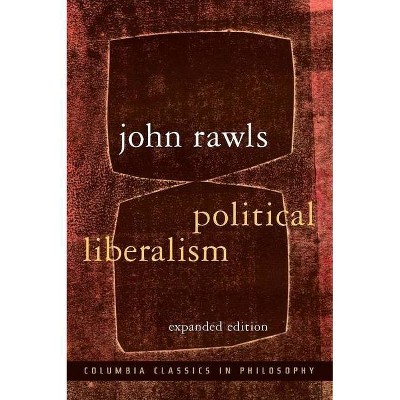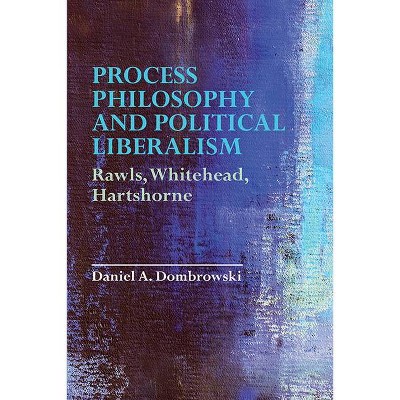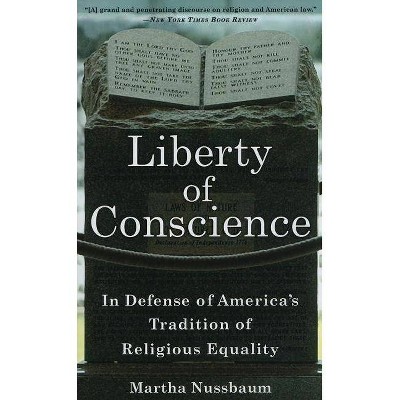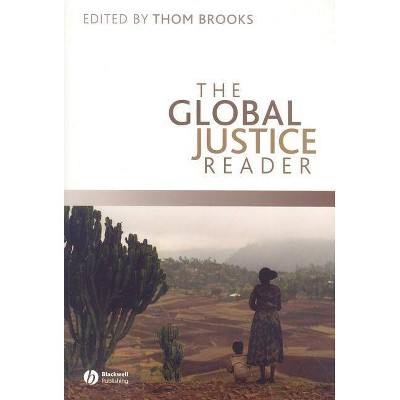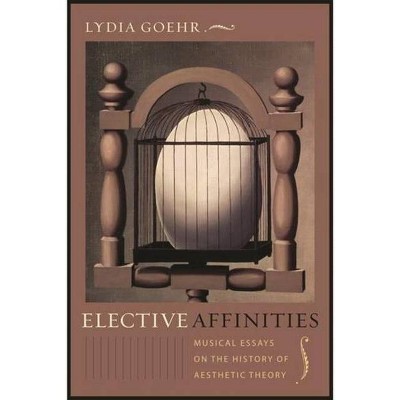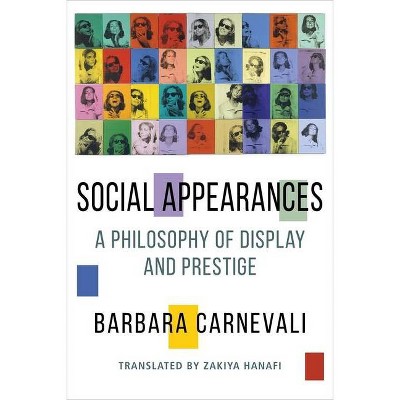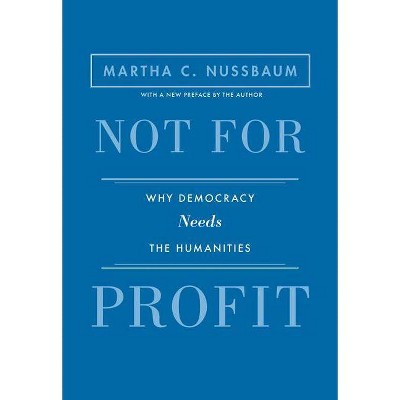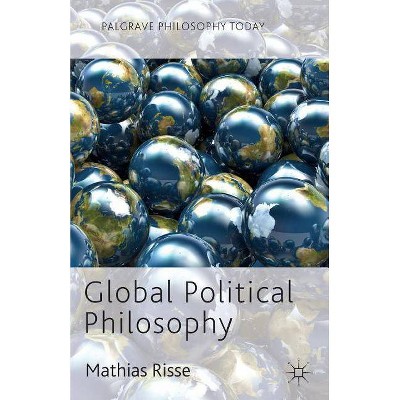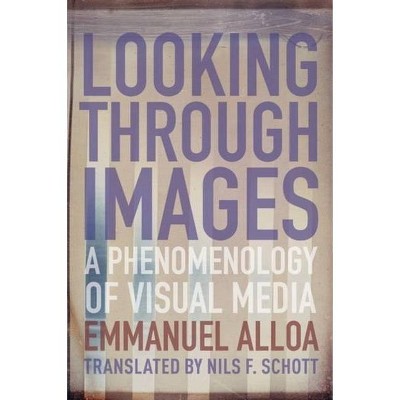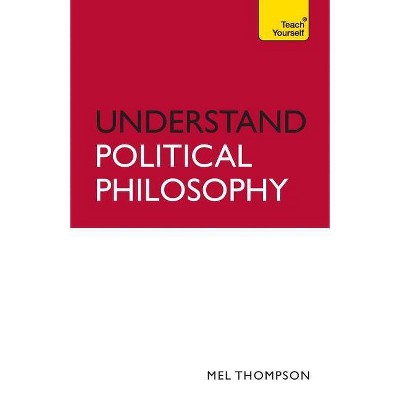Rawls's Political Liberalism - (Columbia Themes in Philosophy) by Thom Brooks & Martha C Nussbaum (Paperback)
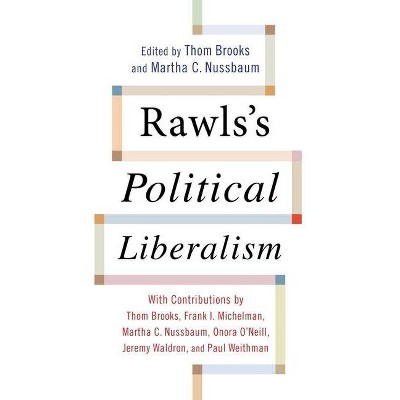
Similar Products
Products of same category from the store
AllProduct info
<p/><br></br><p><b> About the Book </b></p></br></br>Leading figures in politics and philosophy revitalize Rawls's prescription for a just society.<p/><br></br><p><b> Book Synopsis </b></p></br></br>Widely hailed as one of the most significant works in modern political philosophy, John Rawls's <i>Political Liberalism</i> (1993) defended a powerful vision of society that respects reasonable ways of life, both religious and secular. These core values have never been more critical as anxiety grows over political and religious difference and new restrictions are placed on peaceful protest and individual expression. <p/>This anthology of original essays suggests new, groundbreaking applications of Rawls's work in multiple disciplines and contexts. Thom Brooks, Martha Nussbaum, Onora O'Neill (University of Cambridge), Paul Weithman (University of Notre Dame), Jeremy Waldron (New York University), and Frank Michelman (Harvard University) explore political liberalism's relevance to the challenges of multiculturalism, the relationship between the state and religion, the struggle for political legitimacy, and the capabilities approach. Extending Rawls's progressive thought to the fields of law, economics, and public reason, this book helps advance the project of a free society that thrives despite disagreements over religious and moral views.<p/><br></br><p><b> Review Quotes </b></p></br></br><br>Rawls's Political Liberalism includes essays by distinguished and well-known philosophers and theorists. Martha Nussbaum's introduction is an excellent survey of main themes of Political Liberalism and of the philosophical discussion of it. The other essays, all of them up-to-date, are of very high quality. The essays range across a wide variety of philosophically interesting topics (most of them topics with a nice trail of discussion in the secondary literature, amply commented on in the treatments provided in the various chapters). One main focus of the book is on the myriad ways in which overlapping consensus and political stability (operating together on a terrain of moral pluralism) work together. The book makes a strong and compelling case for the enduring philosophical significance of Political Liberalism.--Rex Martin, University of Kansas<br><br>The center-piece is Nussbaum's "Introduction" which is the best of its kind - clear, wide-ranging and insightful. The other chapters, all by leading theorists, make distinctive and important contributions. Some remain close to the text while others explore broader implications of Rawls's approach, but all significantly advance our understanding of what Nussbaum rightly calls "one of the most important works of political philosophy of the twentieth century."--Jon Mandle, University at Albany, State University of New York<br><br>The contributors to this jewel of a collection reveal that there remains much to learn by engaging with Rawls's <i>Political Liberalism</i>. By querying the potential international reach of political liberalism, probing its capacity to account for constitutional and legal arrangements, and reexamining its appeal to conceptions of the good, the authors bring to light new aspects of the work's depth.--Henry S. Richardson, Georgetown University<br><br>These essays by leading political, moral, and legal theorists provide significant interpretations and reassessments of the central ideas of Rawls's <i>Political Liberalism</i>. Martha Nussbaum's introduction is a real service, a must read particularly for those new to the field. Frank Michelman's essay is the best work of its kind on the constitutional specification of the basic liberties, and Jeremy Waldron presents significant new challenges to the idea of public reason. Highly recommended.--Samuel Freeman, University of Pennsylvania<br><p/><br></br><p><b> About the Author </b></p></br></br>Thom Brooks is Professor of Law and Government at Durham University. He is the author of Punishment and founding editor of the <i>Journal of Moral Philosophy</i>. He has edited several collections, including <i>The Legacy of John Rawls</i> and <i>The Global Justice Reader</i>. <p/>Martha C. Nussbaum is Ernst Freund Distinguished Service Professor of Law and Ethics at the University of Chicago. Her principal appointments are in the Philosophy Department and the Law School. Her books include <i>Frontiers of Justice</i>, <i>Creating Capabilities</i>, <i>Political Emotions</i>, and the forthcoming <i>Anger and Forgiveness</i>.
Price History
Price Archive shows prices from various stores, lets you see history and find the cheapest. There is no actual sale on the website. For all support, inquiry and suggestion messages communication@pricearchive.us
